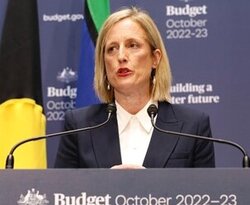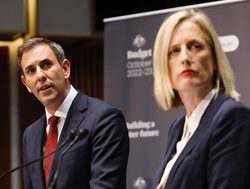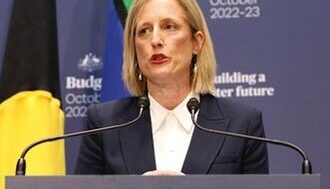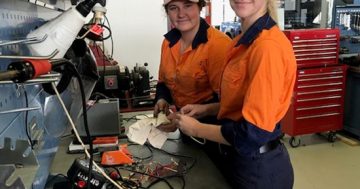Financy* looks at the impact the recent Federal Budget could have on women’s lives.
 The Federal Budget presents the biggest opportunity yet for the Labor government to do a Lizzo and say “It’s about damn time” we set a timeframe target for Australia becoming a gender equal society.
The Federal Budget presents the biggest opportunity yet for the Labor government to do a Lizzo and say “It’s about damn time” we set a timeframe target for Australia becoming a gender equal society.
Unlike previous governments, there are high hopes that the Albanese government will meet conversation with time-setting action following its recent announcement to add an additional six weeks of Paid Parental Leave (PPL) for families, bumping the total leave payable up to 26 weeks.
As it stands it will take 59 years for gender equality to be achieved at a national level, due to the large disparity in unpaid work which significantly holds back the financial progress of Australian women, the Financy Women’s Index shows.
What’s now needed is a national approach that aims to reduce the timeframes to gender equality across areas where women lag men, such as unpaid work, employment, pay, leadership, superannuation and education.
Dr Leonora Risse, Senior Lecturer in Economics at RMIT University believes a gender equality approach to the Budget needs to look beyond specific policies and casting a gender lens across the full policymaking process.
“How will the government’s infrastructure spending announcements, training and skills packages, and climate change mitigation policies differently affect men and women?
“It’s a practice known as gender impact assessments or, more comprehensively, as Gender Responsive Budgeting.”
“Paid parental leave and childcare affordability should be treated as core economic issues that affect the country’s overall productivity and prosperity, rather than just thinking about these policies as ‘women’s issues’.
“We have to make bold moves to make it societally and professionally acceptable for men to put their hand up and take a larger share of parental caregiving.
“Reducing childcare costs will enable women who aspire to work more to do so.
“However this requires investing more in the childcare and early learning sector.
“Bolstering women’s financial self-sufficiency reduces their dependency on government welfare later in life.
“Women took on, and were left to pick up, the bulk of the additional work within families brought on by COVID.”
“Women also lost their jobs or lost hours of work together with any opportunities for career development.
“While many employers were supportive, different employers and managers varied considerably in the support they provided to women who were juggling day to day care responsibilities with the additional burdens of COVID.”
“The impact of the additional burdens taken on by many women during COVID will cast a long shadow on their mental health and the rising number of women seeking help post lockdown is hardly surprising.”
“We need public policy, regulatory interventions and adequate funding to make it easier for all workers to meet their unpaid care responsibilities and that ‘nudge’ men to take on more of the care and domestic work within the household.”
“The proposed ‘use it or lose it’ provision for fathers and partners in the extension of paid parental leave currently under discussion would incentivise shared parental care; an important step towards ensuring that households share the load of unpaid care and domestic work.”
*Financy creates and publishes a variety of content on women’s money matters.
This article first appeared at financy.com.au











